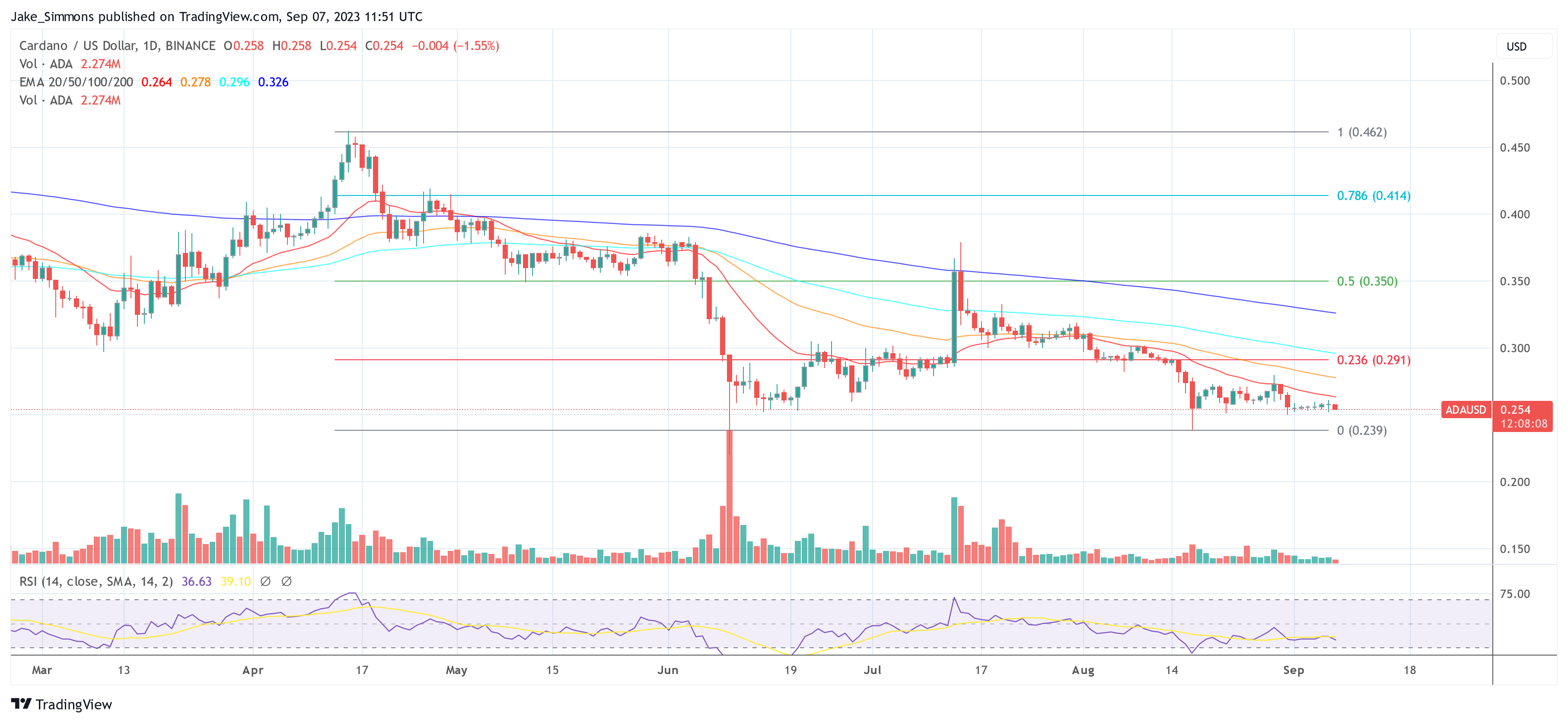- September 7, 2023
- Posted by: admin
- Category: BitCoin, Blockchain, Cryptocurrency, Investments
Strica, the software powerhouse behind Cardano-centric tools such as Cardanoscan.io, Typhon Wallet, and Flac Finance, has introduced Warp Transactions. This innovation promises to revolutionize the way ADA token transfers are conducted on the Cardano network.
The crux of the issue lies in Cardano’s inherent requirement for a minimum of approximately 1.14 ADA to accompany any token transfer. This mechanism, while designed to shield the network from potential threats and spam, has been a point of contention for users. The necessity to attach this minimum ADA when sending tokens has been seen as cumbersome. Warp Transactions, as integrated into the Typhon Wallet, offers a solution to this predicament.
Here’s How Warp Transactions Work On Cardano
“To understand the Warp Transactions it is required that we deep dive a bit into how UTXOs work, transactions are built, signed, and submitted on the network,” the blog post from Strica explains. In essence, the Warp Transaction is a pure UTXO transaction, leveraging multi-signature capabilities, and operates without the need for smart contracts. “The Warp Transaction is sent and signed by a sender and is also signed by the receiver to accept the incoming tokens,” the post further elucidates.
Remarkably, Warp Transactions are exclusive to Typhon Wallet users. Either the sender or receiver can cancel or reject the transaction. Moreover, tokens involved in the transaction are temporarily “locked” until the transaction either completes or is canceled. If the receiver does not sign within 24 hours, the Warp Transaction automatically expires.

The ingenious aspect of this innovation lies in Typhon Wallet’s approach to the ADA requirement. By leveraging the receiver’s UTXOs, the wallet compensates for the mandatory ADA, effectively shifting the ADA cost from the sender to the receiver’s wallet.
Multi-signature transactions, though a foundational element of Cardano since its inception, have been seamlessly integrated into this process by Typhon Wallet. The transaction mandates signatures from both the sender and receiver. Upon detecting an incoming transaction, the receiver is presented with the option to either sign, thereby accepting the tokens, or to reject the transaction outright.
Addressing the role of mempools in this architecture, Warp Transactions employ an intermediate mempool, curated and managed by Typhon’s backend infrastructure. This serves as a provisional repository until the transaction garners full signatures, post which it is relayed to the Cardano network for inclusion in a block.
Potential security concerns regarding the intermediate mempool have been preemptively addressed by Strica. As elucidated in their blog, the transactional data within Typhon’s mempool is no different from what is already propagated on the Cardano network. The transparency and integrity of the process remain uncompromised.
Charles Hoskinson, the inventor of Cardano, lauded the development. Sharing the blog post, he expressed his appreciation with a GIF, commenting, “well done.” In response, Strica tweeted, “Honoured! Today is the real celebration, the full team is happy to see a reaction from Charles. Years of hard work paid off.”
